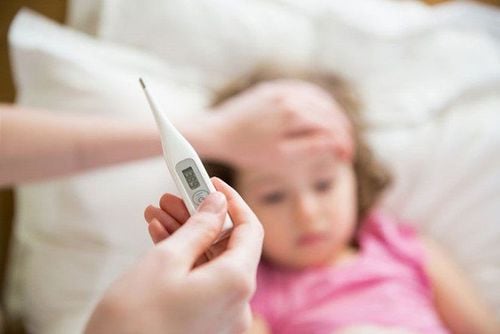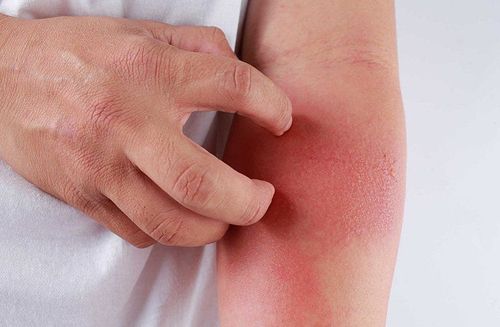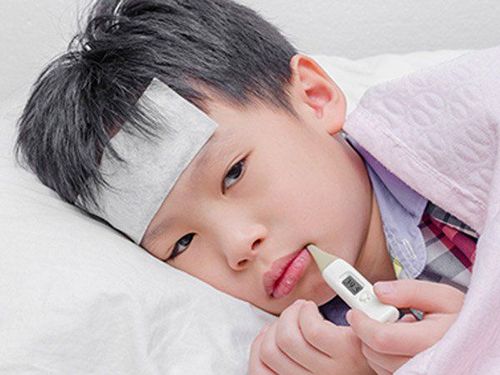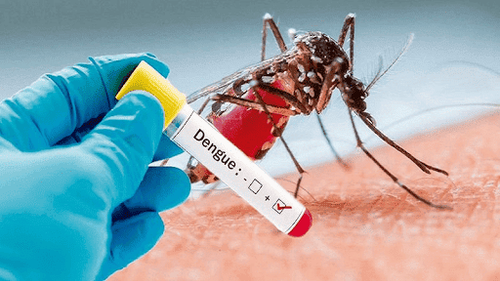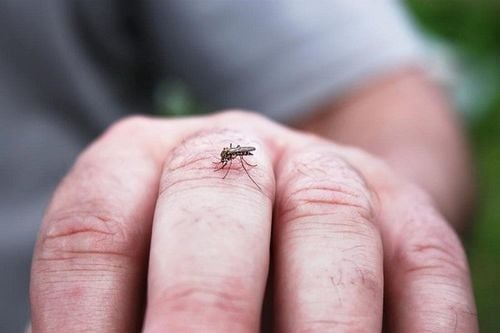This is an automatically translated article.
The article was professionally consulted by Doctor Head of Department of Medical Examination & Internal Medicine, Vinmec Hai Phong International General Hospital
Eating and drinking together, sharing utensils do not transmit dengue fever. Dengue fever is not transmitted by direct respiratory droplets or person-to-person contact. However, if you live in an area where someone is sick or carries a latent virus, you have a high chance of spreading the disease. Let's learn the transmission of dengue fever through the following article to proactively prevent it.
1. How can you get dengue fever? Dengue fever is only spread by Aedes mosquito (zebra mosquito) biting the blood of an infected person or asymptomatic person infected with Dengue virus, then biting a healthy person will transmit the virus to the healthy person through the bite. Therefore, dengue can be spread to others through mosquito bites and develop into an epidemic. In a dengue outbreak, for every 1 typical case, there are dozens of cases of latent virus carriers, without symptoms but still capable of being a source of disease to infect others.
When in the epidemic season, you can hardly be sure that you are not in the outbreak or that the people around you are not carrying the potential virus. Therefore, you always need to be proactive in preventing illness for yourself and your family.
2. What are the characteristics of mosquitoes that transmit dengue fever? The identification of Aedes mosquitoes is black, with white spots on the body and legs, so they are often called midges. When a mosquito bites a person carrying the dengue virus, it becomes infected with the virus. The virus develops in the mosquito for about a week and then spreads to the salivary glands. After this time, mosquito bites are capable of transmitting disease to healthy people.
Once the mosquito has contracted the virus, it can transmit the disease for life. Therefore, only one carrier can transmit the disease to many people. In particular, their eggs can withstand drought for more than a year and still hatch when encountering water. That explains every year, there are patients infected with dengue fever.
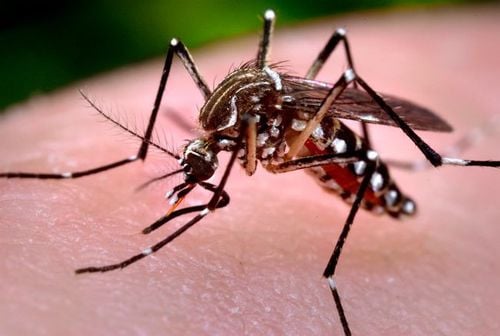
3. When will mosquitoes transmit dengue? Mosquitoes only bite people during the day, not at night. Its peak period of burning is in the early morning and late afternoon, it can burn several times a day if it is not full of blood. Vietnamese people often only have the habit of using nets at night, so even during the day, they still get bitten by mosquitoes and get sick.
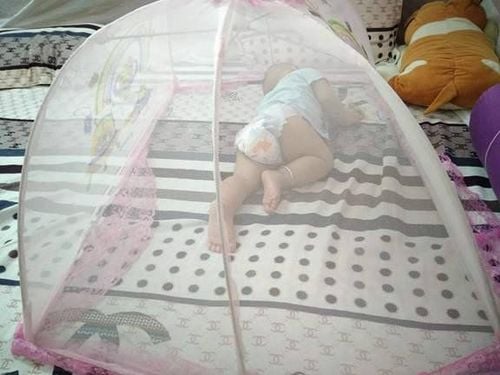
Mosquitoes usually reside in dark corners of the house, preferring to lay their eggs in clean water containers in residential areas. Dengue mosquitoes proliferate strongly in the rainy season, when the average monthly temperature exceeds 20°C. Therefore, the time of the year Dengue fever develops most strongly in July, August, September. 10. During these times, you need to pay more attention to prevent illness. Mosquitoes that transmit dengue often lay their eggs in clean water containers in the home and around the house such as tanks, barrels, jars, jars containing clean water; bottles, flowerpots, empty containers, garbage, damaged tires containing standing water. Therefore, densely populated areas where there is a practice of storing clean water in many types of tools, construction sites, urbanizing areas, and places where there are many waste objects containing rainwater are very favorable places. outbreak of dengue fever. 4. What age group is susceptible to dengue fever? According to doctors, everyone, of all ages, if not immune to the dengue virus, can be infected and infected.
5. How many times can you get dengue fever in a lifetime Many people think that they only get dengue fever once in their life, however, this is a misconception. There are four types of dengue virus circulating in the world, so patients who have been infected can still get infected again, even the next time it's worse than the last time. Therefore, each person can get dengue 4 times in a lifetime. If the person has had dengue fever for the first time, he or she can be infected 3 more times by the remaining dengue virus types.
Reasons for getting dengue next time: If a person gets dengue a second time, the culprit is usually a different type of bacteria. At that time, 2 antibodies of 2 different viruses coexisting in the human body will make the disease worse, cause reactions, increase blood vessel bleeding, increase blood concentration, shock, collapse...
Theo development law of dengue fever, now is the peak of the epidemic, that is, the epidemic develops strongly. You need to apply simple and effective epidemic prevention methods such as: Sleeping under a bed all day and night to avoid mosquito bites; Clean and remove standing water containers inside and outside the home to get rid of mosquitoes. When there are symptoms of suspected dengue infection, it is necessary to see a doctor for appropriate diagnosis and treatment, to avoid complications and unfortunate consequences.
Please dial HOTLINE for more information or register for an appointment HERE. Download MyVinmec app to make appointments faster and to manage your bookings easily.





